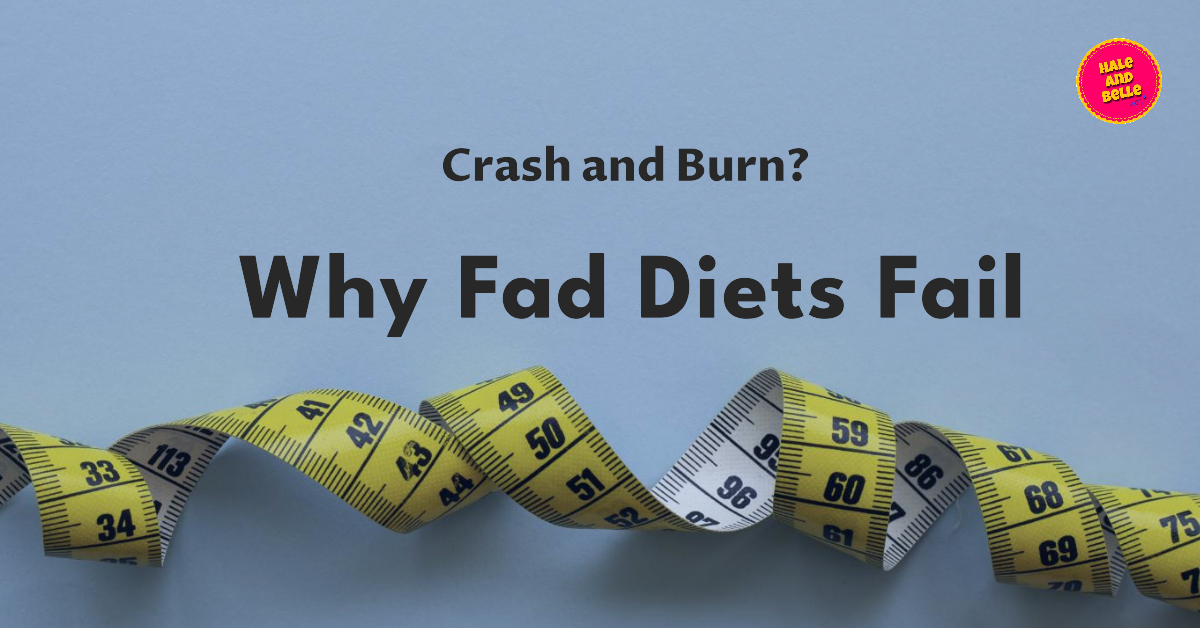In This Article
- 1 Lose Weight Safely (NOT in 10 Days!)
- 2 The Myth of Rapid Weight Loss: A Dangerous Mirage
- 3 Understanding Crash Diets:
- 4 The Dangers of Extreme Calorie Restriction:
- 5 Potential Side Effects of Rapid Weight Loss:
- 6 Sustainable Weight Loss Strategies: A Holistic Approach
- 7 Sustainable Habits for Long-Term Success: Building a Healthier You
- 8 Key Takeaway: Prioritizing Health and Long-Term Well-Being
- 9 Share with your friends:
- 10 Like this:
- 11 Related
Lose Weight Safely (NOT in 10 Days!)
Amidst the cacophony of quick-fix weight loss solutions promising miraculous transformations in mere days, it’s easy to succumb to the allure of rapid results. However, the truth remains steadfast: sustainable weight loss doesn’t adhere to such unrealistic timelines. As we embark on our journey towards healthier living, it’s imperative to debunk the myth of instant transformation and embrace strategies grounded in longevity and well-being. While the desire to shed pounds swiftly is understandable, pursuing rapid results often leads to disappointment and potential harm. Let’s delve into why the notion of shedding significant weight in a matter of days is not only impractical but also detrimental to our overall health and wellness.
The Myth of Rapid Weight Loss: A Dangerous Mirage
Today, the pursuit of rapid weight loss has become increasingly prevalent. Many individuals are lured by the promise of quick results offered by crash diets and extreme calorie restriction. However, beneath the facade of rapid weight loss lies a myriad of dangers that can significantly impact one’s health and well-being.
Understanding Crash Diets:
Crash diets are characterized by their extreme nature, often involving drastic reductions in calorie intake over a short period. These diets typically promise rapid weight loss, sometimes within a matter of days or weeks. However, the weight shed during crash dieting is often primarily water weight and muscle mass rather than fat, leading to a false sense of achievement.
The Dangers of Extreme Calorie Restriction:
Fatigue and Weakness:
Extreme calorie restriction deprives the body of essential nutrients and energy sources, leading to fatigue, weakness, and lethargy. Without an adequate intake of calories, the body struggles to perform its basic functions, resulting in decreased energy levels and diminished physical performance.
Muscle Loss:
In addition to fat loss, crash diets often cause significant muscle loss. When the body is deprived of sufficient calories, it begins to break down muscle tissue for energy, leading to muscle wasting and a reduction in lean muscle mass. This can have long-term consequences for metabolism and overall physical health.
Nutrient Deficiencies:
Crash diets typically involve severe restrictions on food groups, leading to nutrient deficiencies. Essential vitamins, minerals, and macronutrients are crucial for maintaining optimal health and functioning. However, when these nutrients are lacking in the diet, it can lead to a host of health problems, including weakened immune function, impaired cognitive function, and hormonal imbalances.
Potential Side Effects of Rapid Weight Loss:
Metabolic Damage:
Repeated cycles of crash dieting and rapid weight loss can lead to metabolic damage. The body’s metabolism adapts to the prolonged periods of calorie restriction by slowing down, making it harder to lose weight in the future and easier to gain weight.
Gallstones:
Rapid weight loss, especially when achieved through extreme measures, such as very low-calorie diets or fasting, can increase the risk of gallstone formation. Gallstones are hardened deposits that form in the gallbladder and can cause severe abdominal pain and other complications.
Emotional Distress:
The psychological toll of crash dieting should not be overlooked. Constantly depriving oneself of food and obsessing over weight loss can lead to feelings of guilt, shame, and anxiety surrounding food. This can contribute to disordered eating patterns and negative body image issues.
Takeaway:
While the allure of rapid weight loss may be tempting, the dangers associated with crash diets and extreme calorie restriction far outweigh any potential benefits. Instead of focusing on short-term fixes, it is essential to adopt sustainable lifestyle changes that promote long-term health and well-being. By prioritizing balanced nutrition, regular physical activity, and self-care, individuals can achieve their weight loss goals in a safe and sustainable manner. Remember, slow and steady wins the race when it comes to weight loss and overall health (1).
Sustainable Weight Loss Strategies: A Holistic Approach
1. Calorie Deficit: The Foundation of Weight Loss
Achieving sustainable weight loss boils down to a simple principle: calories in versus calories out. To achieve weight loss, it’s necessary to ingest fewer calories than your body burns. Here is how to create a calorie deficit:
- Balanced Diet: Focus on nutrient-dense foods that provide essential vitamins, minerals, and fibre. Choose whole grains, lean proteins, fruits, vegetables, and healthy fats while steering clear of excessive intake of processed foods, sugary snacks, and empty calories.
- Mindful Eating: Pay attention to hunger cues and eat slowly. Mindful eating helps prevent overeating by allowing you to savour each bite and recognize when you’re full.
2. Portion Control: Quality Over Quantity
Managing portion sizes is vital for effective weight management. Even nutritious foods can lead to weight gain if eaten in excess. Consider these tips:
- Use Smaller Plates: Trick your brain into feeling satisfied with smaller portions. A full plate on a smaller dish appears more substantial.
- Listen to Your Body: Stop eating when you feel comfortably full. Avoid mindless snacking or finishing your plate out of habit.
3. Optional: Macronutrient Tracking
While not essential for everyone, tracking macronutrients (carbohydrates, proteins, and fats) can provide insights into your diet. Here’s why some people find it beneficial:
- Precision: Tracking macros allows you to fine-tune your diet. For instance, athletes may need specific protein ratios for muscle recovery.
- Awareness: It helps you understand the composition of your meals. Are you getting enough protein? Are your fats coming from healthy sources?
4. Exercise: The Dynamic Duo with Diet
Physical activity complements your dietary efforts. Here’s how exercise contributes to sustainable weight loss and overall health:
- Burn Calories: Cardiovascular exercises like running, cycling, or dancing torch calories. Strength training builds muscle, which increases your resting metabolic rate.
- Boost Metabolism: Regular exercise revs up your metabolism, helping you burn more calories even at rest.
- Stress Management: Exercise reduces stress hormones, preventing emotional eating and promoting better sleep.
Takeaway:
Sustainable weight loss is not about crash diets or extreme restrictions. It is a gradual process that involves sustainable changes. Combine a balanced diet, portion control, and exercise to achieve your weight loss goals. Remember, consistency and patience are key. Prioritize your health, and the results will follow (2)!
Sustainable Habits for Long-Term Success: Building a Healthier You
In our fast-paced lives, achieving long-term success often requires more than just short-term fixes. It is about cultivating sustainable habits that stand the test of time. Whether you are aiming for better health, increased productivity, or personal growth, gradual changes and healthy routines are key. Here are some practical tips to help you build lasting habits:
Start Small, Think Big:
- Gradual Progress: Rather than attempting drastic changes overnight, focus on small, consistent steps. For instance, if you want to improve your fitness, start with a 10-minute daily walk and gradually increase the duration.
- Micro-Habits: Break down your goals into micro-habits. These tiny actions, like drinking an extra glass of water or doing a few stretches, add up over time.
Nutrition Matters:
- Mindful Eating: Pay attention to what you eat. Mindful eating involves savoring each bite, recognizing hunger cues, and stopping when you’re satisfied.
- Add, Don’t Subtract: Instead of depriving yourself, focus on adding nutritious foods. Add an extra serving of vegetables to your meals or swap sugary snacks for fruit.
Move Your Body:
- Consistent Exercise: Regular physical activity is crucial. Find an exercise you enjoy, whether it’s dancing, cycling, or yoga. Consistency matters more than intensity.
- Incorporate Movement: Take the stairs, walk during phone calls, or do short workouts during breaks. These small changes contribute to overall fitness.
Prioritize Sleep:
- Quality Rest: Aim for 7-9 hours of quality sleep each night. Create a calming bedtime routine and avoid screens before bed.
- Sleep Environment: Make your bedroom conducive to rest—comfortable pillows, dim lighting, and a cool temperature.
Stress Management:
- Mindfulness: Practice mindfulness meditation or deep breathing. These methods help alleviate stress and enhance general wellness.
- Schedule Breaks: Regular breaks during work or study prevent burnout. Step away from screens and stretch.
Consult Professionals:
- Doctor or Dietitian: Before making major lifestyle changes, consult a healthcare professional. They offer personalized guidance for your individual goals.
- Individualized Guidance: A registered dietitian can help you create a sustainable eating plan tailored to your preferences and health goals.
Remember, consistency is the cornerstone of success. Celebrate small victories, stay patient, and embrace the journey toward a healthier, happier you (3).
Key Takeaway: Prioritizing Health and Long-Term Well-Being
As we wrap up our discussion on sustainable weight loss, it’s crucial to reiterate the significance of safe and sustainable practices. While the allure of rapid transformations and fad diets may be tempting, the true path to lasting health lies in gradual progress and mindful choices.
1. Safe and Sustainable Practices:
Crash diets and extreme measures can yield quick results, but they often come at a cost to our overall well-being. Instead, let’s embrace methods that allow our bodies to adjust naturally. Gradual weight loss—around1 to 2 pounds per week—ensures that we’re shedding fat rather than precious muscle mass. Remember, it’s not just about the numbers on the scale; it’s about feeling energized, strong, and vibrant.
2. Beyond Aesthetics:
While looking good is a valid motivation, let’s shift our focus to the health benefits of shedding excess weight. Reduced risk of heart disease, improved blood pressure, better blood sugar control, and enhanced joint health are just a few of the rewards. When we prioritize our long-term well-being, aesthetics become a pleasant side effect rather than the sole goal.
So, dear readers, let’s embark on this journey with patience, kindness to ourselves, and a commitment to sustainable change. Our bodies deserve nothing less than the best, and by choosing health over quick fixes, we pave the way for a vibrant and fulfilling life.
Remember: It’s about boosting your overall health, not just the number on the scale.
Keep moving forward, one step at a time.
Track Your Progress and Stay Motivated!
Reaching your weight loss goals is a journey, and tracking your progress can be a powerful tool for staying motivated. Here at website.com, we offer a suite of free tools to help you monitor your weight management journey:
- BMI Calculator: Understand your Body Mass Index and what it means for your health.
- BMR Calculator: Determine your Basal Metabolic Rate, the number of calories your body burns at rest.
- Calorie Calculator: Set personalized calorie goals based on your activity level and weight loss targets.
Click here to access our free weight management tools and take control of your health today!











